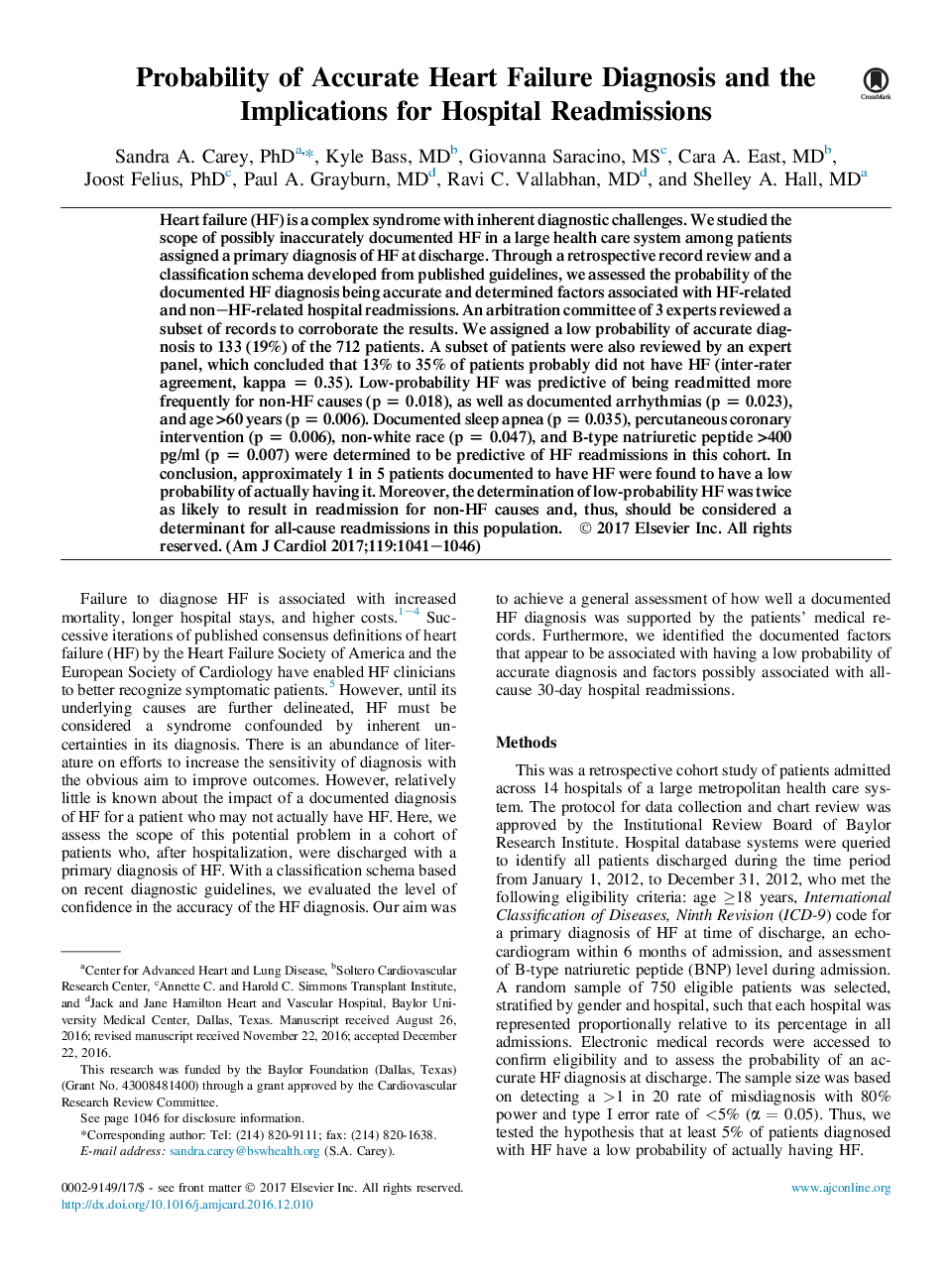| Article ID | Journal | Published Year | Pages | File Type |
|---|---|---|---|---|
| 5595154 | The American Journal of Cardiology | 2017 | 6 Pages |
Abstract
Heart failure (HF) is a complex syndrome with inherent diagnostic challenges. We studied the scope of possibly inaccurately documented HF in a large health care system among patients assigned a primary diagnosis of HF at discharge. Through a retrospective record review and a classification schema developed from published guidelines, we assessed the probability of the documented HF diagnosis being accurate and determined factors associated with HF-related and non-HF-related hospital readmissions. An arbitration committee of 3 experts reviewed a subset of records to corroborate the results. We assigned a low probability of accurate diagnosis to 133 (19%) of the 712 patients. A subset of patients were also reviewed by an expert panel, which concluded that 13% to 35% of patients probably did not have HF (inter-rater agreement, kappa = 0.35). Low-probability HF was predictive of being readmitted more frequently for non-HF causes (p = 0.018), as well as documented arrhythmias (p = 0.023), and age >60 years (p = 0.006). Documented sleep apnea (p = 0.035), percutaneous coronary intervention (p = 0.006), non-white race (p = 0.047), and B-type natriuretic peptide >400 pg/ml (p = 0.007) were determined to be predictive of HF readmissions in this cohort. In conclusion, approximately 1 in 5 patients documented to have HF were found to have a low probability of actually having it. Moreover, the determination of low-probability HF was twice as likely to result in readmission for non-HF causes and, thus, should be considered a determinant for all-cause readmissions in this population.
Related Topics
Health Sciences
Medicine and Dentistry
Cardiology and Cardiovascular Medicine
Authors
Sandra A. PhD, Kyle MD, Giovanna MS, Cara A. MD, Joost PhD, Paul A. MD, Ravi C. MD, Shelley A. MD,
